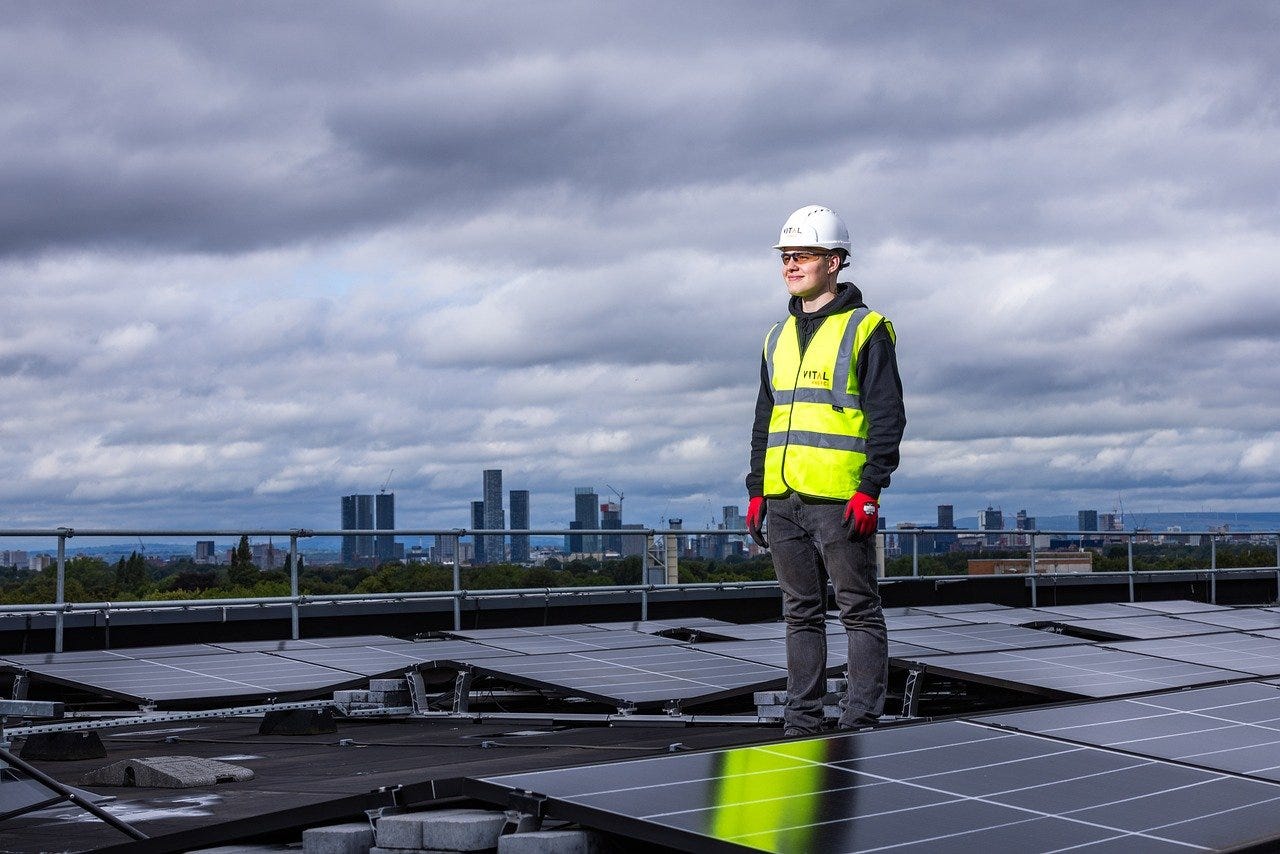UK Renewables Benefit after 140-Year Use of Coal Ends
Good Energy Group will benefit from coal's phase out and government support

The United Kingdom (UK) closed its last coal-fired power plant, ending its 140-year reliance on coal to generate electricity. This could provide new opportunities for British renewable companies.
The Ratcliffe-on-Soar plant had been operational since 1967. Its closure on September 30 is a milestone in the country’s commitment to reaching net-zero emissions by 2050.
But the closure comes after British consumer confidence plummeted in September on concerns about the country’s weak economic performance. The UK reported flat GDP of 0.5% for the second quarter of this year, a revision down from 0.6%.
Britain’s energy regulator, Ofgem, has also set an energy price cap at around £1,717 per year, a 10% increase of £149. This was done to alleviate energy price pressures on the British households.
UK energy prices have been regulated since 2019 but experienced the worst increase between August 2021 and August 2022. Then wholesale prices rose by more than 500%. Russia’s invasion of Ukraine, the closure of Nord Stream 1, and infrastructure issues were the main reasons behind this trend.
"None of us imagined a future without coal generation in our lifetimes," Peter O'Grady, the plant’s manager, told the BBC. "I am incredibly proud to be part of this energy milestone as the country focuses on a cleaner energy future."
O'Grady had worked at the plant for 36 years.
UK Renewables Will Benefit as Coal Phased Out
Despite the push for renewables, the UK still lacks large, publicly listed pure-play renewable energy companies.
However, Good Energy Group (AIM: GOOD), a renewable company founded in 1999, is well-positioned to benefit from the end of coal. The company focuses on electricity generation from wind and solar sources and offers various renewable energy services.
Good Energy has significantly improved its financial standing recently, reducing its debt-to-equity ratio below 10%. The company now holds a substantial cash balance equivalent to 80% of its market capitalization.
Although the company is currently unprofitable, its P/S ratio is only 0.3x, and its forward P/E ratio is 6.22x.
CEO Nigel Pocklington said in September on an earnings call that he was optimistic about the regulatory tailwinds.
The Labour government's policy agenda “is favorable, with changes to planning reforms and a focus on community energy and rooftop solar,” he said. “These align with Good Energy's core purpose and position us well for the next phase of the energy transition.”
He also noted that he plans to look for acquisitions to expand the national footprint and scale up the operations to benefit from the strong demand in the sector.
New Task Force Supports UK Renewables
To facilitate the country’s transition to renewables, the UK reactivated its Solar Energy Taskforce. It brings together the Department for Security, Energy & Net Zero, regulators, and industry leaders to update Britain’s solar energy roadmap.
Energy Secretary Ed Miliband praised the role of solar energy in achieving British climate goals.
"The relaunch of the Solar Taskforce is essential for accelerating action and innovation in our journey towards clean power by 2030,” he said. “Solar energy will be a key driving force behind our clean power mission."
The government’s ambitious goals have been dubbed a “solar rooftop revolution,” with installation on millions of homes and businesses. Initial plans reach as much as 2GW of capacity.
UK Renewable May Hurt Competitiveness
While the UK has phased out coal, it remains an essential energy source in many parts of the world. Critics, though, have questioned whether the UK can compete with other economies still reliant on coal.
Globally, coal still accounts for about 35% of electricity generation, and demand remains robust, particularly in China and India. In 2023, China alone accounted for two-thirds of newly commissioned coal power plants globally, CNBC reported.

Despite efforts to reduce reliance on coal, the steel industry is heavily dependent on coking coal. Efforts to reduce carbon emissions require a switch to higher-grade iron ore.
For that purpose, China has partnered with Rio Tinto, investing billions in a Simandou iron mine in Guinea—the largest global mining project.
UK Builds First Coal Plant in World
For the UK, the closure of Ratcliffe-on-Soar is the end of an era.
The UK's coal power era began in 1882 with Thomas Edison's Holborn Viaduct plant – the first in the world. At the time, coal was abundant and became the backbone of Britain’s industrial growth.
Coal played a cornerstone role in shaping the UK, ushering in the era of railways and factories that powered the country’s economic expansion.
However, the UK has witnessed two significant waves of reducing coal usage over the past three decades. The first wave occurred in the 1990s, when coal’s share of electricity generation dropped from around 65% to about 35%, spurred by the growing availability of natural gas and the closure of coal mines.
The second wave, starting in the 2010s, was driven by the UK’s adoption of stringent carbon pricing mechanisms and a shift towards renewable energy sources like wind and bioenergy, which eventually caused a total phase-out.
"The closure of the Ratcliffe power station marks the end of an era, and coal workers can be rightly proud of their work powering our country for over 140 years. However, a new age of good energy jobs is just beginning as we move towards cleaner, more sustainable sources of energy,” said Energy Minister Michael Shanks.




